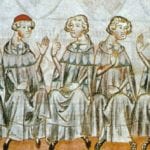 Music
Music  Music
Music  History
History 10 Less Than Jolly Events That Occurred on December 25
 Weird Stuff
Weird Stuff 10 Funny Ways That Researchers Overthink Christmas
 Politics
Politics 10 Political Scandals That Sent Crowds Into the Streets
 Weird Stuff
Weird Stuff Ten Bizarre Facts About The Doge Meme
 Our World
Our World 10 Ways Your Christmas Tree Is More Lit Than You Think
 Movies and TV
Movies and TV The 10 Coolest Stars to Set Sail on The Love Boat
 History
History 10 Things You Didn’t Know About the American National Anthem
 Technology
Technology Top 10 Everyday Tech Buzzwords That Hide a Darker Past
 Humans
Humans 10 Everyday Human Behaviors That Are Actually Survival Instincts
 Music
Music 10 Surprising Origin Stories of Your Favorite Holiday Songs
 History
History 10 Less Than Jolly Events That Occurred on December 25
 Weird Stuff
Weird Stuff 10 Funny Ways That Researchers Overthink Christmas
Who's Behind Listverse?

Jamie Frater
Head Editor
Jamie founded Listverse due to an insatiable desire to share fascinating, obscure, and bizarre facts. He has been a guest speaker on numerous national radio and television stations and is a five time published author.
More About Us Politics
Politics 10 Political Scandals That Sent Crowds Into the Streets
 Weird Stuff
Weird Stuff Ten Bizarre Facts About The Doge Meme
 Our World
Our World 10 Ways Your Christmas Tree Is More Lit Than You Think
 Movies and TV
Movies and TV The 10 Coolest Stars to Set Sail on The Love Boat
 History
History 10 Things You Didn’t Know About the American National Anthem
 Technology
Technology Top 10 Everyday Tech Buzzwords That Hide a Darker Past
 Humans
Humans 10 Everyday Human Behaviors That Are Actually Survival Instincts
10 Bizarre Hypothetical Forms Of Government
We have been ruled by kings and queens, emperors and empresses, theocrats, fascists, authoritarian dictators, faceless bureaucrats, howling mobs, aristocratic elites, and, allegedly, the popular will. Nevertheless, there are some forms of political organization that have been discussed, but never actually implemented.
10 Technocracy
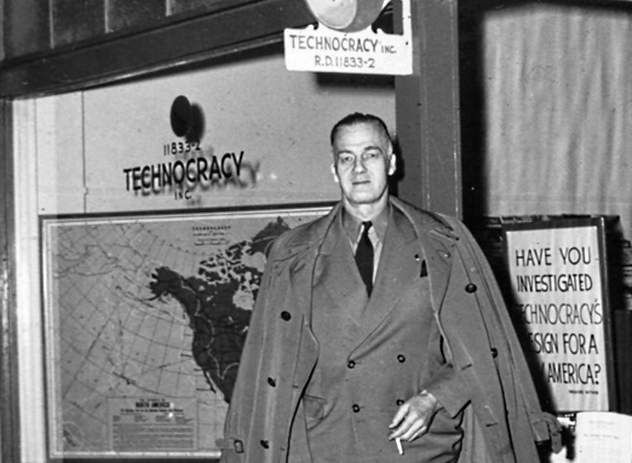
The Industrial Revolution brought wonderful, labor-saving machines and techniques, but most people have remained stuck in the manual drudgery of industrial capitalism. Some opposed this economic status quo, such as Norwegian-American economist Thorstein Veblen. He believed humanity possessed three natural instincts: “idle curiosity,” a desire to learn new things regardless of their practical applications, “workmanship,” a desire for creative achievements of high quality, and the “parental bent,” a desire to use one’s knowledge to improve society. Veblen believed that these natural characteristics could form the basis of a technocratic system of social and economic organization superior to the existing capitalist system.
Howard Scott (pictured above) became inspired by these ideas after attending a series of lectures by Veblen in the mid-1920s. Scott believed that as productivity outpaced employment and investment, spiraling debt and unemployment would lead to the collapse of capitalism. Yet the very processes that threatened systemic destruction could prove to be mankind’s salvation, if placed into the hands of sober-minded technicians. To do so, however, the democratic political system and capitalist price system would have to go. Scott joined an organization of scientists and engineers who sought to survey energy use in North America and its relation to economic growth, which formed the nucleus of the formal Technocracy Movement.
The Great Depression saw a boom in interest in Technocracy, which competed with Marxist Communism to provide an alternative vision to the existing system. Technocracy offered a purportedly scientific explanation for the hard economic times, which was publicized in New York newspapers, Time Magazine, and other media outlets. At the height of its influence, Technocracy held large rallies under the Technocratic symbol of the monad, an ancient symbol of balance. The uniform of the Technocrats was a well-tailored, double-breasted suit, gray shirt, blue necktie, and a monad insignia on the lapel, rather more stylish than the Fascists running Europe at the time. The Technocratic utopian vision involved a united North American superstate with energy as the national currency.
Franklin D. Roosevelt’s New Deal reforms took much of the wind out of Technocracy’s sails. The failure of Technocracy was largely due to the emotional and practical appeal of liberal democracy, as well as the popular association of Technocracy with Communism (understandably) and Ludditism (bizarrely). Technocracy still survives today as a non-profit organization that allows anyone who is not a member of a political party to join.
9 Proletarian Democracy
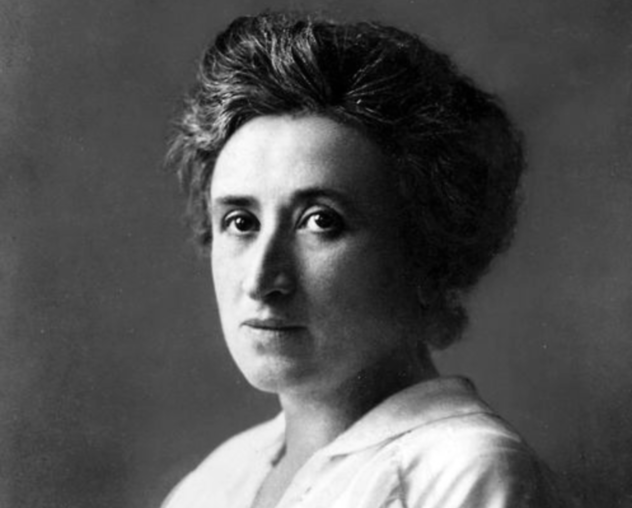
Vladimir Lenin believed that achieving the communist utopia required the destruction of the state bureaucracy, as well as the bourgeois democracy. In his view, a “dictatorship of the proletariat,” where political power was controlled by industrial workers, was infinitely better than liberal democracy, where political power was ultimately controlled by property owners at the expense of workers. This dictatorship was natural, as he believed that historically, no oppressed people ever came to power without crushing reaction from the previous dominant class. While the bourgeois capitalist exploiters still remained a threat, no real freedom of assembly or press was possible or desirable, but that was okay, because eventually true freedom would come naturally through commitment to communism.
Socialist thinker Rosa Luxemburg disputed this idea, believing the basic flaw in the Soviet system was that if only Party supporters had freedom, political life would become stunted and inefficient, and only the bureaucracy would hold any real influence. Her alternative vision was one in which workers enjoyed political freedom and participation in a democratic system of competing workers’ parties. While she believed in the inevitable collapse of capitalism, her criticism of the Bolsheviks was even more cutting: “The remedy that Lenin and Trotsky have found, the elimination of democracy as such, is worse than the disease.” Luxemburg believed that while the socialist revolution would lead to a disruptive period where the privileges and economic relationships of the exploiting class were progressively eliminated, the goal was to create a democratic system for the working class as a whole, not merely a minority party ruling in the name of that class.
Luxemburg’s vision of a true socialist democracy demanded not just political equality but also economic, social, and legal equality. Decisions would be made through broad popular participation. Also, there would be no suppression or any indifference to suppression. Luxemburg was an influential figure in the German Communist Party, but after a failed 1919 coup, Luxemburg was arrested, shot, and dumped in Berlin’s Landwehr canal. Her predictions regarding the Soviet Union and other Marxist-Leninist states proved true.
8 Perfect Commonwealth
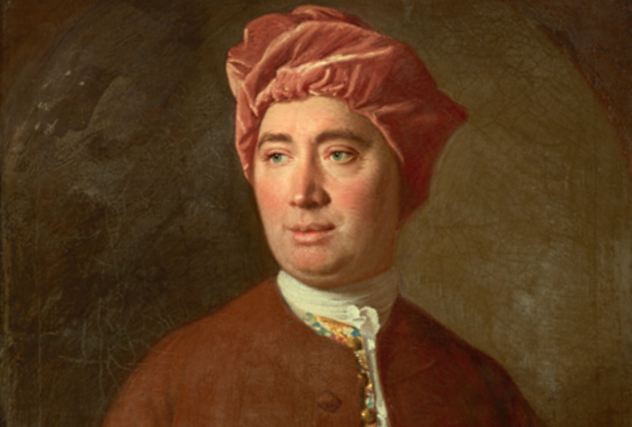
Philosopher David Hume believed that the origin of government lay in human nature. Man is a social animal with an awareness of distant, important interests but is easily distracted by momentary temptations. All forms of government are attempts by human beings to redress this dangerous imbalance through the administration of justice via authority. The balance of authority and obedience creates a stable society, but within imperfect governments, there is always a tension between this authority and the desire for liberty. To Hume, a truly “free” government would see near-absolute power divided between several individuals or bodies, each constrained by general and equal laws known in advance by the people within that society.
Hume expanded upon these ideas in An Idea of a Perfect Commonwealth, in which he outlined his idea for an ideal government system, heavily based on his reading of English history. It was an aggressively federalist vision, dividing England and Ireland into 100 counties and each county into 100 parishes. Each of the 10,000 parishes would elect by ballot a county representative, who would meet with other representatives to elect a senator and 10 county magistrates. The 100 members of the Senate would then be granted the same level of executive power that was held by the British monarchy in Hume’s day.
Hume’s system sought to incorporate factionalism and self-interest in order to maintain a healthy constitutional pluralism, held together by checks and balances to prevent the rise of any form of arbitrary power. Self-interest was, he believed, an inevitable and even desirable trait in his balanced system, as was factionalism, as long as these tendencies were constrained and used to create a healthy political competition. The whole system is held together by a respect for law: the fundamental law of a constitution, the common law of custom and habit, and the civil law created by the legislature. He also saw authority as ultimately stemming from the opinion of the governed and believed that a balanced government would have to consider public opinion as well as the restrictions of institutions. Though nothing as extreme as his Perfect Commonwealth was ever attempted, David Hume’s ideas had significant influence on the framers of the American Constitution.
7 Jeffersonian Democracy
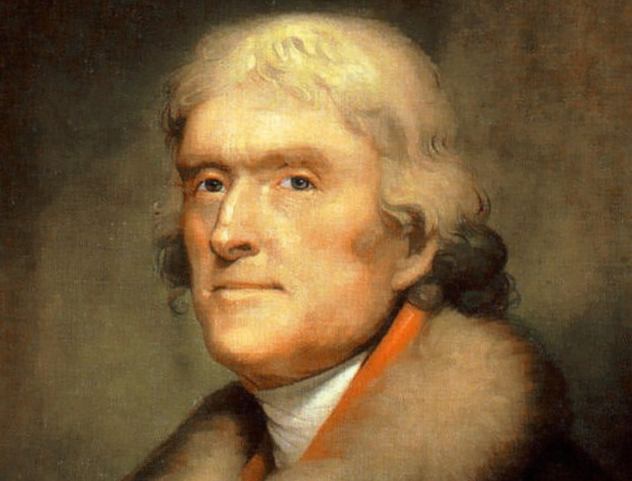
The early American republic saw a bitter ideological dispute emerge soon after George Washington stepped down from power. On one side were the Federalists, who believed in a strong national government led by propertied men of experience with close diplomatic ties with Great Britain. On the other side were the Republicans, who preferred the power of strong states to resist an overbearing federal government and opposed entanglements in foreign affairs, though they had far more sympathy for French revolutionaries than British mercantilists. The Republicans feared the Federalist agenda would lead to rule by a centralized urban elite of merchants and financiers, to the detriment of popular democracy.
James Madison was the initial leader of this movement, but soon Thomas Jefferson took over as the main spokesman. Jefferson had a vision of democracy that heavily invested in the will of the majority, which was largely agrarian at the time. Jeffersonian democracy believed in a republic based on the yeomen: self-sufficient and independent farmers organized through a decentralized and self-governing state structure, which protected them from the corruption of the cities. The federal government would be small and concentrate on protecting the rights and property of individuals. In the meantime, however, the interests of most people were better served by the rule of an elite group of agrarian landowners, who could better represent their interests, rather than the mercantile elite of the cities. This was intended as a temporary solution, as the agrarian aristocrats would help educate the masses on the proper values of democracy.
Jefferson’s democratic vision suffered serious flaws. It demanded a significant westward expansion to allow for the yeomen’s continued demographic dominance, leaving no place for the Native American population. It also was an awkward ideological fit with African slavery. Though the Federalists were wiped out politically, the inexorable forces of international commerce and technological development weakened the prospects of an agrarian democracy. The debacle of the War of 1812 showed the need for federalized institutions like a national bank and a professional military, as well as the importance of an industrial manufacturing base. Moderates within the Republican party joined with moderates from the defunct Federalists to sideline the Jeffersonian radicals, laying the foundation for a more balanced political system.
6 Geniocracy

Former race car driver and journalist Rael wasn’t content with creating his own UFO cult; he also created his own political philosophy, though he claimed he merely studied it during his 1975 sojourn to the planet of the Elohim. Geniocracy is based on the idea that historically, governments have invariably been based on either brute force, wealth, or the hoarding of knowledge. Rael believed modern democracy was actually “mediocracy,” as the average voter only has an average IQ. He instead proposed a form of selective democracy in which only those with an IQ over 110 possessed the right to vote, and only those with IQs over 150 could run for office. There were, however, to be no restrictions on the class or background of those tested, guaranteeing a system of geniuses representing all races, sexes, and social classes. This is described as “Government of the People, for the People, by the Geniuses.”
The establishment of a geniocracy initially involves determining a fair, equitable test to measure intellectual potential, without bias from educational or cultural background. The end goal is a geniocratic world order, in order to save humanity from destroying itself, remove the causes of violence, and replace work with universal self-fulfillment. The money for all this was to come from the geniuses themselves, who were instructed to give 10 percent of their income to the World Geniocratic Government, in exchange for which they were promised the benefits of life in intellectual communes, specialized schools for their children, a WGG passport, and subscription to a Geniocracy newsletter.
Some compared the geniocratic movement with the 19th-century French rightist movement Synarchy, which sought to establish a secret, elite government. In 1978, Rael founded a political party called the Movement for World Geniocracy and secured the election of geniocrat Marcel Terrusse in the village of Sarlat. However, pressure from the French government over the use of the swastika symbol, as well as backlash to Geniocracy’s creepy eugenics connotations, led Rael to abandon the political movement in favor of his religion, saying, “We cannot fight on two fronts at once. Besides, thus far we lack the tools to measure intelligence.”
5 Futarchy

The brainchild of economist Robin Hanson, the core idea of futarchy is to “vote on values, but bet on beliefs.” Individual voters would vote not on individual policies, but rather on a metric used to determine the economic health of their country. When the metric is determined, prediction markets would be used to choose the appropriate policies. Prediction markets allow people to stake bets on the likelihood of various events taking place, such as elections and sporting victories. The policies that are determined most likely to increase national welfare (according to the voted-on metric) would become law under this system. Participants in the system therefore vote on what they want to achieve (values) and then bet on what they think is the best way to achieve what they want (beliefs).
Hanson believed that democracies fail because while there is existing information that can help indicate which policies are most likely to succeed or fail, the general public is largely ignorant of the information and generally unwilling to learn. This means that politicians are forced to adopt terrible policies to appease a feckless and ill-informed public. Hanson instead proposed that informed participants on a speculative market, who have their own self-interest to consider as well as a generally better education, should bet on whether or not to implement a proposed policy. After 10 years, the results of the policy are analyzed and those who bet on the winning policy get a payout relative to how well it did. Such a process would mean that informed policy decisions would be made by educated people in a state of competition, leading to the best possible result thanks to the magic of the market.
This is all meant to be ideologically neutral, as voters choose what they want to achieve, while the prediction market only determines the best way to go about it. The advantage of the system would be to create a decentralized and pseudonymous system of government of a higher order of complexity than what currently exists. However, the risks of abuse, including coercive gaming of the system and even hacking, make it a somewhat risky bet.
4 Anarchist Society

Anarchism is often misunderstood, with many assuming that “anarchism” means the lawless madness of a Mad Max environment. This isn’t true. Philosophical anarchism doesn’t promote chaos, but rather the dream of a society with minimal or absent coercion, where no one ever needs to be forced to do anything they don’t want to do. Russian philosopher Mikhail Bakunin was instrumental in the development of philosophical anarchism, a revolutionary ethos opposed to the Communism of Marx and Engels. He was a materialist who rejected most abstract ideals but strongly believed in individual freedom on a universal scale. He said: “No man can achieve his own emancipation without at the same time working for the emancipation of all men around him. My freedom is the freedom of all since I am not truly free in thought and in fact, except when my freedom and my rights are confirmed and approved in the freedom and rights of all men who are my equals.” Anarchism opposes all forms of coercive authority, which is defined as the “eminently theological, metaphysical, and political idea that the masses, always incapable of governing themselves, must submit at all times to the benevolent yoke of a wisdom and a justice, which in one way or another, is imposed from above.”
The core values of anarchism are freedom and self-management, without submission to authority from above in any form. Different anarchist thinkers have had different ideas as to how an anarchist society would operate, but they are united in the idea that all human beings should be considered both equal and free. Beyond the limits of an individual’s body and the laws of nature, anarchists believe that the only thing keeping people back from achieving what they want is their own minds. The infinitely creative potential of humanity is constrained by existing in societies based on force, primarily the nation-state, and these social and political forces must be dismantled for the human race to achieve real freedom and prosperity.
An anarchist society would be made up of voluntary assemblies of decentralized and directly democratic groups. The alienation of life in hierarchical cities is replaced by these self-governing communes, which linked with one another by federations. Participation or non-participation in a commune and its political life is entirely voluntary. Anarchist ideas played an important role during the Spanish Civil War, but the movement was wiped out by fascist attacks and betrayal by the socialists and liberals. However, the strains of anarchist thought can still be found in many revolutionary movements today.
3 Distributed Government

Some believe that the inefficiency of modern government, and the disinterest of large sections of the population to political affairs, is the result of the fact that centralized bureaucratic government is fundamentally anachronistic, an outdated idea from a time when communication and transport were difficult. Breaking down centralized institutions and physically distributing government officials and organizations across the nation would make it more efficient, lower costs, and reduce the elitism of a cloistered ruling class. Many functions of the government bureaucracy could be more efficiently taken over by the private sector, while government officials would remain in their home districts and formulate policy and legislation with colleagues remotely. They would be forced to spend more time with their constituents, instead of in closed boardroom meetings, and create legislation comprehensible to the average voter, as opposed to only fellow elected aristocrats with law degrees.
Such a model would have severe effects on taxation. Under the current system, tax is aggregated in a central hub and then filters down into national spending. In a distributed government model, the allocation of funding would be decided by individual taxpayers themselves, meaning you could freely choose to allocate more of your tax dollars to education and less to defense, or vice versa. As information services break down the borders between citizens, business, and government, some government services could be taken over by relevant private sector entities, letting you renew your passport through a travel company in the same way a car dealer will register your car upon purchase.
This is a technologically enhanced vision of government. Social media networks and cloud computing would help citizens to find crowdsourced solutions to social problems, while the communication technologies would allow citizens, the private sector, and government to interact on a personal level. Increasing numbers of sensors would accrue varied data on everything from biohazards to environment pollution, as would geospacial technology for traffic and weather patterns. This would allow for more effective allocation of resources and swifter collective responses to crisis situations. Though many technological developments cause fear of the rise of Big Brother, these same technologies could be democratized and used to stimulate political participation and hold the government more accountable.
2 Demarchy

Some believe that many political problems of today are due to the fact that modern representative democracy is nothing more than a thin veneer obscuring an oligarchy of professional politicians. Electoral-representative structures have been taken over by the wealthy elite, who control policy direction to better extract wealth at the expense of the rest of the population.
Australian philosopher John Burnheim has an alternative. He proposes fixing the problem of electoral corruption by doing away with the state bureaucratic system and replacing it with a system based on random selection from the population. In a representative democracy, the population votes on who makes decisions, while in a direct democracy, decisions are made by the population as a whole. Under a demarchy, random individuals in the population would be chosen by lot to act as citizen-jurors for a short period of time and then return to their normal lives. Meanwhile, the massive state apparatus would be replaced by small-scale decision-making groups in control of a certain field, such as local health, transport, or land use. These groups are formed through the random selection of individuals volunteering to serve in a particular group.
Demarchy has a number of advantages over representative democracy. It guarantees a far more representative body of legislators than has been delivered by the electoral system, in which most politicians are members of the wealthy elite. Politicians chosen by lot to serve limited terms would be less prone to corruption and the political pressure of lobby groups than professional politicians. Without knowing who will be chosen, political party machines could not groom individuals for power, and citizen-jurors would be more beholden to their communities, since they will only have power for the length of their term and then return to their lives. Demarchy would see political power distributed fairly across the lines of class, sex, race, personality, and orientation, rather than coalescing in groups of vested interest.
Demarchy has its drawbacks. Random sortition risks inefficient use of time and inevitably would see occasions where the obvious best candidate for a position misses out, while a vaguely interested amateur muddles through things. The system would also be vulnerable to the influence of populist demagogues and invite an excessive imbalance of power toward a minority if some groups of people express a greater political interest in a certain field and volunteer in greater numbers. Many are uncomfortable with the idea of having a political system based on sheer randomness. However, there are some good scientific studies indicating that random decisions are often the best ones.
1 Liquid Democracy

In a representative democracy, voters choose representatives to serve their interests for a period of office. In a direct democracy, voters participate in decision making directly. The former is prone to corruption and elite politics; the latter is prone to mob rule, majority tyranny, and logistical nightmares. Liquid democracy proposes a new system, also known as delegative democracy or the transferable proxy system. Like a direct democracy, each citizen has a single vote on each issue. But they can choose to name another voter as their proxy and personal delegate, transferring their vote to them. They may do this because they lack the requisite knowledge to make a decision on an issue but know a better-informed person who shares their values and whose opinion they trust. Individuals may choose to pass on all votes to a certain proxy, or only votes in a particular policy area, or even just the votes on a particular issue. These proxies can then pass on their votes to other proxies if they so choose. This creates a chain of effect in which, for example, a voter disinterested in land reform passes his vote along to an agriculturally-minded buddy, who then passes her votes on to a trusted expert or decision-making body. Voting and proxying is usually secret but can be made either private or public depending on the choice of the individual, allowing each person to choose how much transparency they wish to exhibit in their political choices.
The largest body pushing for the adoption of liquid democracy is the German Pirate Party, and it has been linked with the open-source decision-making software LiquidFeedback, which combines liquid democracy with collective moderation and preferential voting. The advantages of liquid voting would be the weakening of rigid party politics, allowing the expression of complex political beliefs that don’t fit standard ideological lines, reducing the burden of knowledge, and allowing citizens to participate in the political process in a more liberated manner.
Skeptics of liquid democracy point to the political gridlock that can occur when the public votes on every issue. There are also issues with the idea of having popular and influential proxies accruing voting power from the uninformed and a loss of the compromise and bargaining that allows representative democracy to work. There are also fears that power and influence in this system would be more liquid than is perhaps desirable, as well as problems with stability and continuity.
David Tormsen believes in eight of these systems. Drop him a line at [email protected].








